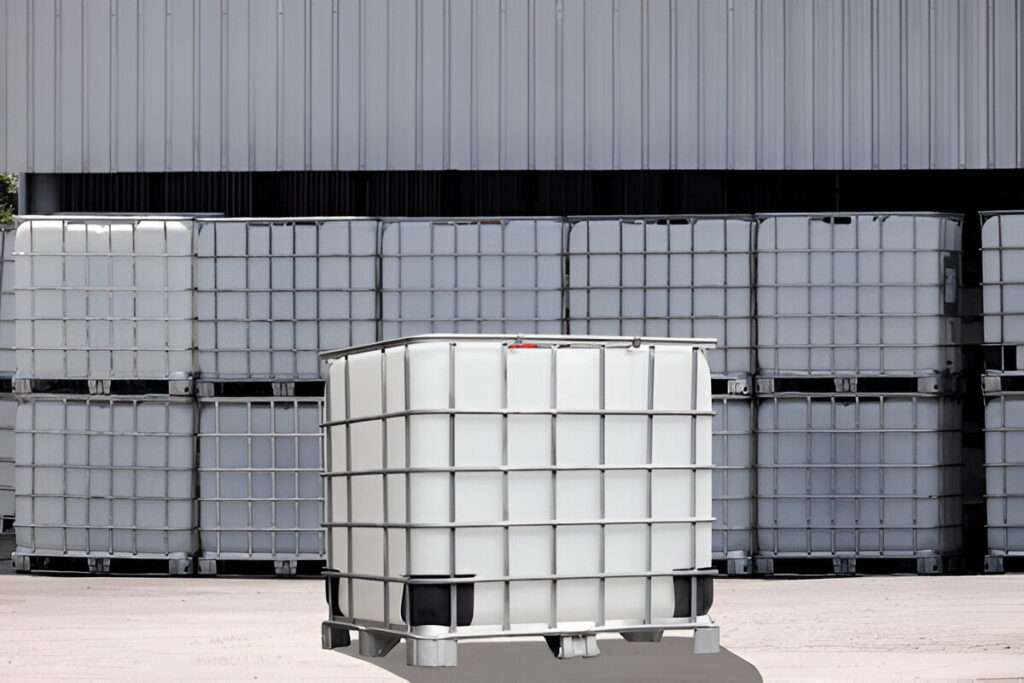If you’re thinking about saving money and being resourceful, one great option is to use IBC totes for storage, transport, or even creative projects. These big, durable containers are popular in farming, manufacturing, and even backyard rainwater collection.
But buying them used? That’s where things can get a little tricky.
Before you grab the first cheap tote you find online, let’s go over 10 important tips to help you buy used IBC totes the smart way.
1. Know What an IBC Tote Is
An IBC tote (Intermediate Bulk Container) is a large, reusable storage tank made from plastic and metal. It’s used to carry liquids, chemicals, and even food ingredients. Most hold around 275–330 gallons. They’re stackable and come with a valve at the bottom for easy pouring.
Knowing what they’re meant for helps you decide if a used one will meet your needs.
2. Check What It Held Before
This is super important. Used IBC totes may have stored anything from drinking water to toxic chemicals. Ask the seller what the tote previously contained. If they don’t know, or if it’s unclear, skip it.
Tip: Look for labels or residue that might give you clues about the previous contents. Only consider totes that carry non-toxic materials if you’re planning to use them for gardening, food, or water.
3. Inspect the Interior Carefully
Don’t just judge the tote by how clean it looks on the outside. Open the lid and look inside for any strong smells, stains, or leftover residue.
If it smells weird or looks stained, it might not be worth the risk, especially if you want to store something clean or edible.
4. Check the Valve and Lid
Used totes often have wear and tear, and the valve at the bottom or the lid on top might not work like they should. Make sure the valve turns smoothly and seals tightly. Also, check that the lid isn’t cracked or broken.
You don’t want leaks, especially if you’re storing water, oil, or other liquids.
5. Make Sure the Frame is Sturdy
Most IBC totes have a metal cage around the plastic container. This helps protect the tote and makes it easier to move with a forklift. Look closely for bent bars, rust, or broken welds.
A damaged frame can be dangerous and hard to transport safely.
6. Ask If It’s Been Cleaned
Some sellers clean used totes before selling them. Others? Not so much.
Ask if it’s been pressure-washed or sanitized. A properly cleaned tote is much safer to reuse, and it saves you a lot of time and effort.
If it hasn’t been cleaned, figure in the extra cost and work it’ll take to do it yourself.
7. Know the Material Type
Not all IBC totes are made the same. Some are food-grade (usually HDPE plastic), while others are made for industrial chemicals.
If you’re planning to use your tote for anything food-related, like rainwater, compost tea, or syrup, you want food-grade plastic only.
Always double-check what kind of plastic the tote is made from and whether it’s labeled as food-safe.
8. Compare Prices
Used IBC totes can range in price depending on size, condition, and previous use. A clean, food-grade tote might cost more than one used for chemicals, but for good reason.
Don’t just jump on the cheapest one. Compare prices online, ask around locally, and check for bulk discounts if you need more than one.
9. Consider How You’ll Transport It
IBC totes are big and bulky, even when empty. Make sure you have a vehicle or trailer that can handle the size and weight. Most won’t fit in a standard car or SUV.
Also, ask the seller if they can help load it or if you need to bring your own equipment.
Planning ahead will save you time—and possibly your back.
10. Buy From a Trusted Seller
This might be the most important tip of all. A trustworthy seller should answer your questions, provide photos, and give honest details about the tote’s condition.
Check reviews if you’re buying online. If you’re buying locally, ask for a quick inspection before paying. A reputable seller will have nothing to hide.
Final Thoughts
Buying used IBC totes can be a smart and budget-friendly move—as long as you know what to look for.
Whether you’re setting up a rainwater collection system, creating a DIY planter, or storing non-potable liquids, the right tote can serve you well for years.
Just be cautious, ask the right questions, and always prioritize safety and cleanliness. One good tote is better than five sketchy ones.
